NHRC core group meeting on rights of bonded labour
Press Release
National Human Rights Commission
New Delhi: 12th July, 2024
NHRC core group meeting on rights of bonded labour
NHRC Acting Chairperson Smt Vijaya Bharathi Sayani emphasizes an integrated and long-term strategy for the rehabilitation of freed bonded labourers to ensure their reintegration into society with dignity
Says, preventive measures should include public awareness campaigns, rights education, adult literacy programs, worker organization, income generation, and vocational skills development
Among several suggestions in the meeting, the creation of a portal emphasized for the registration of informal workers seeking jobs outside their states
The National Human Rights Commission (NHRC), India convened a core group meeting to discuss impediments in the abolition of Bonded Labour and gaps in their rescue, relief and rehabilitation in the country. The meeting was chaired by the NHRC Acting Chairperson, Smt Vijaya Bharathi Sayani wherein Secretary General, Shri Bharat Lal and other senior officers, experts and human rights defenders were present.
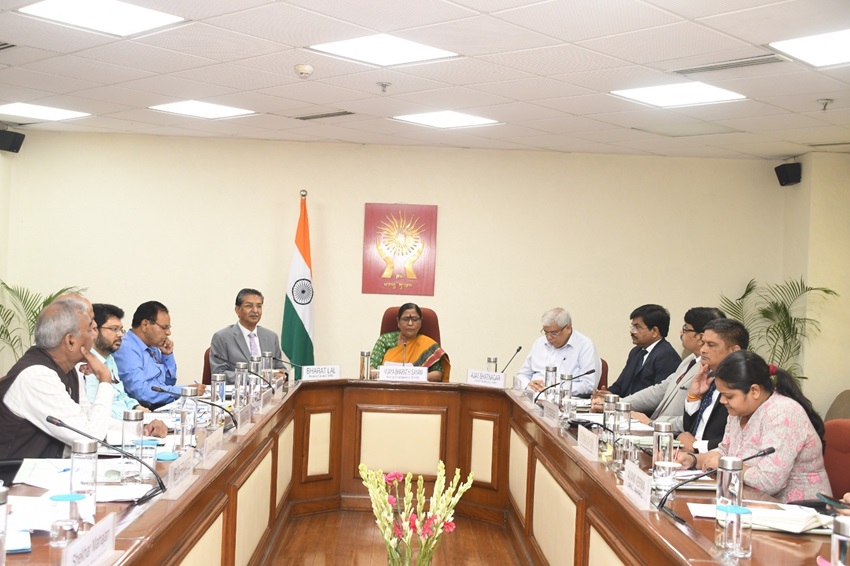
Smt Vijaya Bharathi Sayani said that despite efforts and legal provisions, several people still get trapped in forced labour and debt bondage. The NHRC has taken significant steps, including issuing advisories to identify, release, and rehabilitate bonded labourers. However, the persistence of bonded labour in various industries indicates much more needs to be done. The bonded labour has various names extending into non-farming sectors including the Devadasi system and small-scale industries.
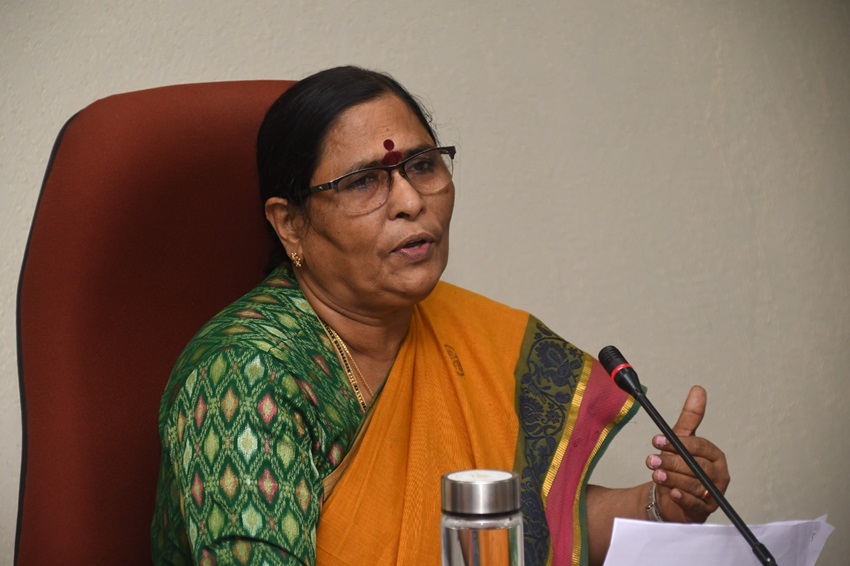
Shri Bharat Lal, Secretary General, NHRC emphasized the need for concrete suggestions to abolish the menace of bonded labour. He said that India still has value systems that provide ethical impetus towards dealing with this issue. Therefore, while enforcing the implementation of the legal provisions, social awareness must be spread about the value systems protecting the rights and dignity of fellow human beings to reduce bonded labour in India.
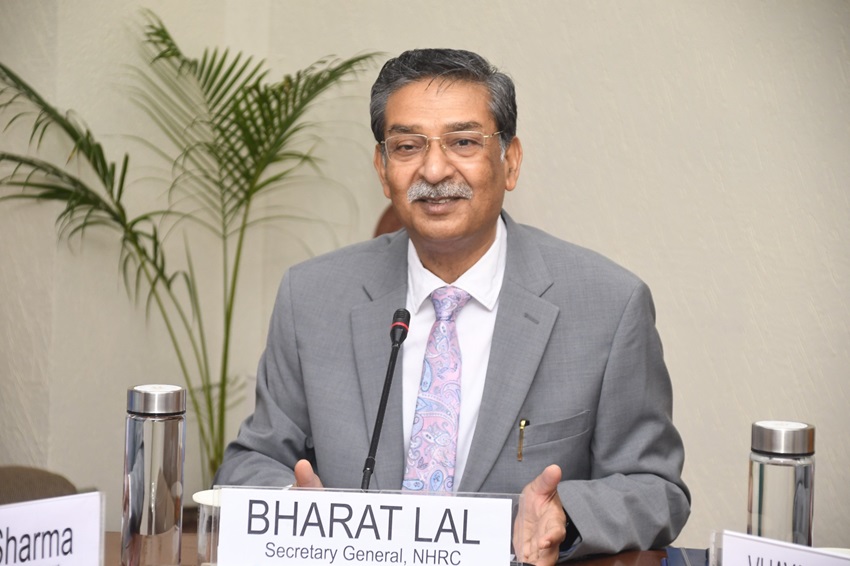
He also pointed out that almost 2 crore people are joining India's workforce every year, implying that there is a mismatch of demand and supply as far as labour is concerned leading to some anti-human labour practices. Recently, the Commission had taken suo motu cognizance of an MNC engaging their workers in 10 hours of continuous labour. Delivery service-providing companies today also, at times, put the lives of their executives at risk while ensuring 15-minute deliveries and similar services, thus impacting an entire generation negatively. Domestic workers also come under the same purview.
Earlier, Shri Devendra Kumar Nim, Joint Secretary giving an overview of the core group meeting said that many children from distressed migrant families end up as bonded labourers in sectors like textiles, firecracker manufacturing, brick kilns, and granite extraction units. Women and children from marginalized communities, especially SCs and STs, are frequently targeted for bonded labour in agriculture and textiles. A study showed that 83% of rehabilitated bonded labourers belong to SCs or STs. Rescued bonded labourers face threats and delays in registering First Information Reports (FIRs), complicating their path to justice.
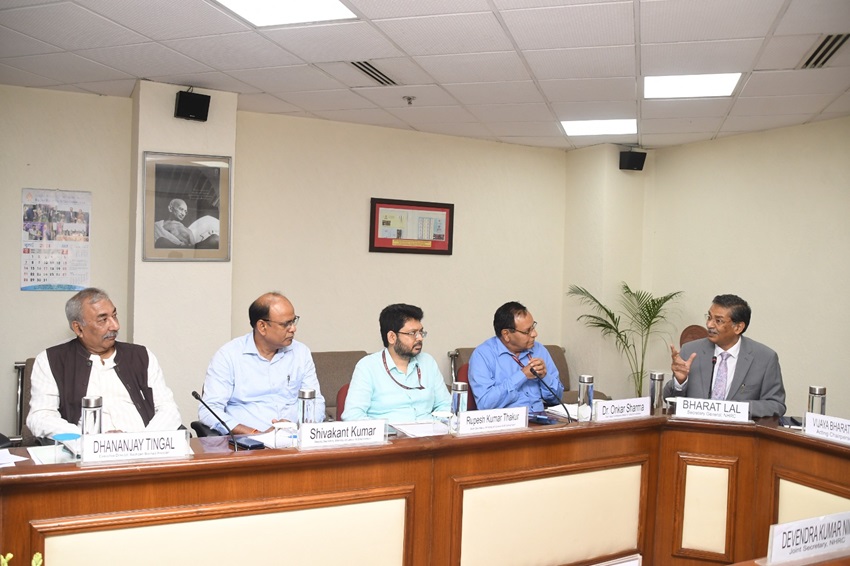
The agenda of the meeting was focused on three technical themes which were as follows:
- Existing Constitutional and Statutory provisions on Bonded Labour and their Implementation.
- Presence of Bonded Labour in industry with specific mention of Agriculture, Textiles Industry and brick kiln establishments.
- Situation of women and children as frequent targets of Bonded Labour.
The discussion followed with the inputs from various speakers. Initially, speakers from the Ministry of Labour & Employment briefed about the constitutional and legal provisions available in India regarding the Abolition of Bonded Labour System in India. Shri Onkar Sharma, Chief Labour Commissioner, elaborated upon the concept of “3-D Jobs” that highlight the dangerous, difficult and dirty nature of the jobs done by bonded labourers. The issue of conception and the gaps between the powers of the beneficiary and his understanding of the law were also stressed.
In addition to the Core group members, some special invites such as Dr. Alby John Varghese, IAS; Managing Director, Metropolitan Transport Corporation (Chennai) Ltd. suggested the creation of a portal for registration of such informal workers who may register themselves to secure jobs outside their states. Further, another special invitee suggested an Inter-state Cell that could track Bonded Labourers migrating across states. State-level helplines may be introduced or improved to take up matters on Bonded Labour.
Furthermore, Dr. L. Mishra, IAS (retd.) called for restoring dignity and protection from abuse for bonded labourers, and criticized the agent/middlemen clause in the Inter-State Migrant Workmen Act. The low issuance of release certificates and the call for better monitoring and data recording were also suggested. Another prominent suggestion made by Sh. Sandeep Chachra, Executive Director, National Coordinator, Action Aid India, to keep an industry-based approach and specific regulations for brick kiln workers, including better working conditions. Lastly, NGO representatives advocated for NGO involvement in rescues and better enforcement of SOPs and reporting by Gram Panchayats.
Some of the suggestions that emerged from the meeting were as follows:
• Create a portal for registration of such informal workers who may register themselves to secure jobs outside their states;
• Set up an Inter-state Cell to track Bonded labourers migrating across states;
• Formalize the labour contracting mechanism;
• The NHRC may have a dedicated mechanism for filing complaints of Bonded Labour for expeditious interventions;
• Expand the interpretation of human trafficking to include bonded labour;
• Sensitization of the Police personnel and District Administration is necessary while dealing with Bonded Labour;
• Reduce the time gap between rescue, relief and rehabilitation of bonded labour;
• NALSA should provide legal assistance to the victims of bonded labour;
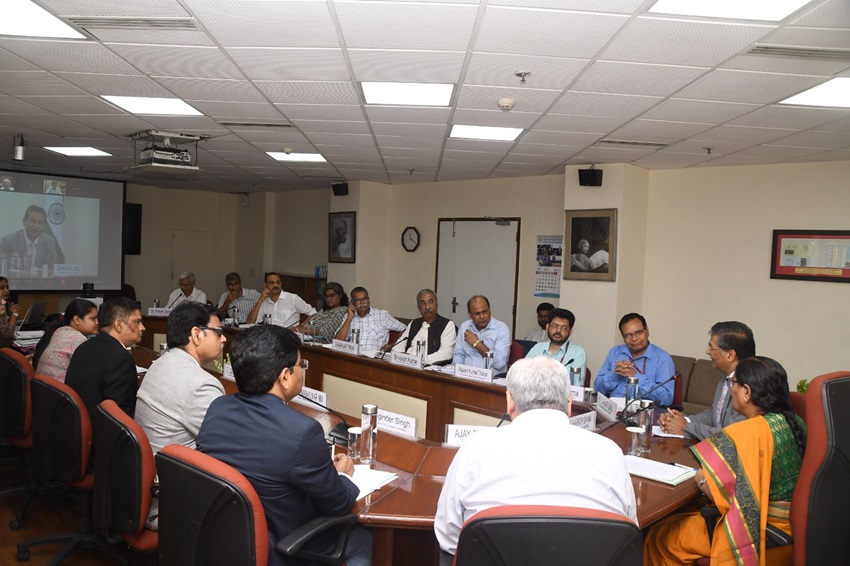
The Commission will further discuss various suggestions and inputs in the matter to firm up its recommendations for the government. The participants included the NHRC Director General (Investigation), Shri Ajay Bhatnagar, Registrar (Law), Shri Joginder Singh, representatives from government ministries, autonomous bodies, non-governmental organizations (NGOs), academic institutions, and research scholars, contributing to discussions on pertinent issues surrounding rights of bonded labour.
****







 राष्ट्रीय मानव अधिकार आयोग, भारत
राष्ट्रीय मानव अधिकार आयोग, भारत

